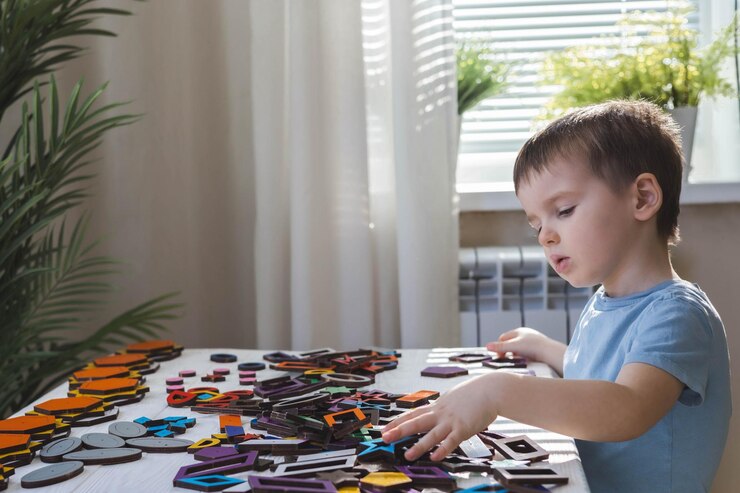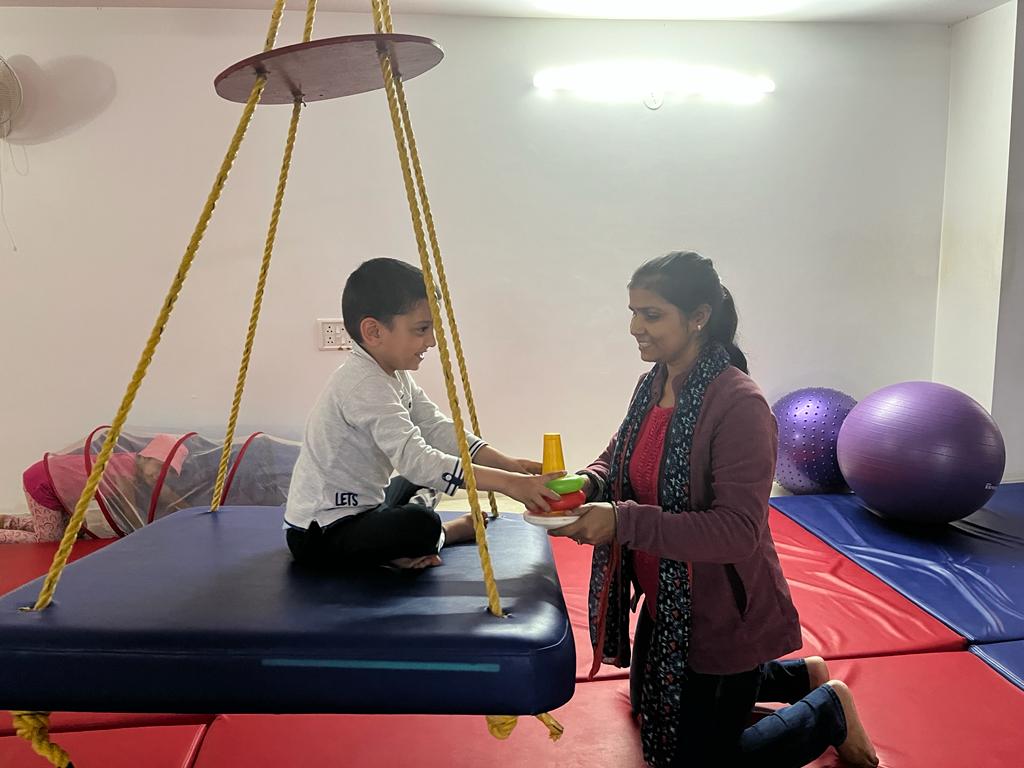
Parenting a child with autism often involves navigating uncharted territory, full of questions and concerns: Can therapy truly help my child develop essential skills? What is the best therapy for autism? What therapies are successful for ASD, and how can I best support my child?
These questions may seem daunting.
However, the good news is that advancements in neuroscience, particularly in understanding neuroplasticity, offer a beacon of hope.
Neuroplasticity—our brain’s remarkable ability to reorganize and adapt—can play a pivotal role in autism interventions, especially when combined with evidence-based therapies.
In fact, neuroplasticity autism treatment focuses on leveraging the brain’s adaptability to help children build essential skills and overcome challenges. Plus, with evidence-based methods like ABA therapy treatment plans, we can use neuroplasticity to help children build skills and thrive.
Here, we’ll explore the science of neuroplasticity, the impact of neuroplasticity on autism therapy, some commonly asked questions by parents, and how Early Autism Ventures (EAV) can guide your child’s journey toward growth and development.
What Is Neuroplasticity, and Can Neuroplasticity Help Autism?
Neuroplasticity refers to the brain’s ability to change its structure and function in response to learning, experience, or injury.
When it comes to autistic neuroplasticity, this malleability is particularly important because it underscores how early interventions can influence developmental pathways.
Research shows that children’s brains are most plastic in the early years of life. This critical window of development offers immense opportunities for therapies to promote skill-building, learning, and adaptive behavior.
But, can neuroplasticity help autism?
Yes! Research reveals that therapies rooted in neuroplasticity can significantly improve communication, social interaction, and behavior (source).
For example, autism therapy techniques like occupational therapy or speech therapy use repetition and positive reinforcement to help the brain form stronger connections.
Also Read: Role of a Shadow Teacher in Supporting Children with Autism
Neurofeedback therapy for autism has also shown promise in enhancing social functioning in individuals with Autism Spectrum Disorder (ASD).
This approach has been linked to improvements across various areas, including social communication, social motivation, social awareness, social cognition, and even reducing autistic mannerisms.
By training the brain to function more efficiently, neurofeedback helps children with ASD better engage with others and navigate social situations.
Why Is Neuroplasticity Important for Autism?
Autism Spectrum Disorder (ASD) is characterized by challenges in communication, social interaction, and behavior. However, these difficulties don’t represent fixed limitations.
By leveraging neuroplasticity, tailored interventions can create new neural connections, enhancing a child’s ability to learn and thrive. Some approaches include:
- Building Communication Skills: Speech therapy, for example, helps children form neural pathways associated with language comprehension and verbal expression.
- Strengthening Social Interaction: Applied Behavior Analysis (ABA) promotes positive behavioral reinforcement, encouraging better social connections.
- Encouraging Emotional Regulation: Interventions like occupational therapy can help children manage sensory sensitivities and build self-regulation skills.
The Science Behind Early Intervention
Did you know that early therapy for autism can significantly improve outcomes?
A 2022 study highlights that early behavioral interventions can lead to notable improvements in IQ, language, and adaptive functioning for children with autism.
This aligns with the principles of neuroplasticity—early experiences shape brain development. The sooner parents engage their children in therapy, the greater the likelihood of creating lasting positive changes in their brain structure and function.
The Importance of Applied Behavior Analysis (ABA)
Among the most effective therapies for autism is Applied Behavior Analysis (ABA). Backed by decades of research, ABA leverages neuroplasticity to reinforce desirable behaviors while reducing those that interfere with learning and development.
Key Benefits of ABA include:
- Individualized Approach: ABA is tailored to each child’s unique needs, helping them work on areas like communication, self-help skills, and emotional regulation.
- Positive Reinforcement: Through rewards-based learning, ABA strengthens neural pathways that encourage adaptive behavior.
- Evidence-Based Success: Studies report that intensive ABA therapy can result in significant gains in social, academic, and life skills. In fact, a study found that children receiving ABA for at least 20 hours per week demonstrated marked progress in cognitive functioning and adaptive behaviors.
Common Questions About Neuroplasticity and Autism Therapy
- Can therapy really rewire the brain?
A: Absolutely! Neuroplasticity enables the brain to form new connections. Through structured and consistent therapy, children with autism can build skills they previously struggled with, such as communication and social interaction. - How soon should I start therapy for my child?
A: The earlier, the better. Early intervention capitalizes on the brain’s heightened plasticity during childhood, making therapy more effective and long-lasting. - Is progress guaranteed for every child with autism?
A: Every child’s journey is unique, but research consistently shows that early, evidence-based interventions can significantly improve outcomes.
At Early Autism Ventures, we specialize in providing customized autism interventions that harness the principles of neuroplasticity. Our services are rooted in the belief that every child has the potential to grow, learn, and succeed with the right support.
If you’re feeling overwhelmed or unsure of where to begin, you’re not alone.
At EAV, we’re here to guide you every step of the way. From initial assessments to ongoing therapy, our goal is to empower your child—and your family—with the tools to succeed.
Our team of skilled and experienced therapists is dedicated to using ABA and other proven methods to support your child.
We take a well-rounded approach, not just focusing on challenges but also highlighting your child’s strengths, working closely with families to create a personalized plan.
Parents who have worked with us consistently see improvements in their child’s communication, social skills, and overall development, making EAV a trusted choice for many.
Ready to Shape Your Child’s Future?
The journey of parenting a child with autism is filled with possibilities. With the right interventions and support, your child can overcome challenges and thrive in ways you never imagined.
Let Early Autism Ventures help you tap into your child’s potential through scientifically-backed therapies that change lives.
Contact us today to schedule a consultation and take the first step toward a brighter future for your child.










Recent Comments